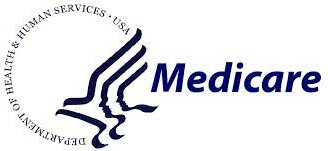Medicare. The government defines it as “The federal health insurance program for people 65 and older.” That seems simple enough. But there’s more to it than meets the eye because Medicare, like so many other things, has fine print that could end up costing you a lot of money if you don’t know about it. Since Medicare began in 1965, a myth has developed that Medicare pays for all your healthcare costs. Absolutely not true! The Medicare website says, “Original Medicare covers most, but not all of the costs for approved health care services and supplies. If you get a service that Medicare doesn’t cover, you pay the full cost. There’s no limit on what you’ll pay out-of-pocket in a year unless you have other coverage.” Medicare pays 80% of approved expenses,
Topics:
Bob Williams considers the following as important: 5.) Alhambra Investments, Featured, Financial Planning, newsletter, retirement income
This could be interesting, too:
Nachrichten Ticker - www.finanzen.ch writes Die Performance der Kryptowährungen in KW 9: Das hat sich bei Bitcoin, Ether & Co. getan
Nachrichten Ticker - www.finanzen.ch writes Wer verbirgt sich hinter der Ethereum-Technologie?
Martin Hartmann writes Eine Analyse nach den Lehren von Milton Friedman
Marc Chandler writes March 2025 Monthly
Medicare. The government defines it as “The federal health insurance program for people 65 and older.” That seems simple enough. But there’s more to it than meets the eye because Medicare, like so many other things, has fine print that could end up costing you a lot of money if you don’t know about it.
Since Medicare began in 1965, a myth has developed that Medicare pays for all your healthcare costs. Absolutely not true! The Medicare website says, “Original Medicare covers most, but not all of the costs for approved health care services and supplies. If you get a service that Medicare doesn’t cover, you pay the full cost. There’s no limit on what you’ll pay out-of-pocket in a year unless you have other coverage.”
Medicare pays 80% of approved expenses, “approved” being the key. The remainder either comes out of your pocket, or is paid for if you have a Medicare Supplement policy. And that assumes you use doctors and providers who have agreed to accept the amount of money Medicare pays for those “approved” services.
Depending on the service or supply, what you pay may be higher if doctors, other health care providers, or suppliers don’t accept assignment—the amount Medicare will pay. Although the Medicare-approved amount is lower for doctors who don’t accept assignment, they can charge you 15% over the Medicare-approved amount. This is called the “limiting charge.” When getting certain supplies and DME, Medicare will only pay for them from Medicare-enrolled suppliers, no matter who submits the claim, you or your supplier.
Also, watch out if your doctor or other health care provider recommends services more often than Medicare allows or services Medicare doesn’t cover at all. If this happens, you may have to pay some or all of the costs out-of-pocket. Always ask questions, so you understand why your doctor is recommending certain services and if Medicare will pay for them.
Another section of fine print deals with “Prior Authorization”, which requires a health care provider to obtain approval from Medicare before a given service is provided. Prior Authorization is about cost savings, not care. Under Prior Authorization, benefits are only paid if the medical care has been pre-approved by Medicare.
Medicare writer Diane Omdahl tells the story of a retired Midwestern teacher who had the option of choosing a Medicare Preferred Provider Organization (PPO) plan or a Medicare Supplement plan. Only in the fine print did she discover there was a deadline, and if she didn’t act by a specified date, she would automatically be enrolled in the PPO plan.
A Florida man discovered this in the fine print, “You may get two 30-day supply fills of the same maintenance medication at a retail pharmacy. Prior to your 3rd fill, you must call us and tell us if you would like to keep getting your maintenance medications from a retail pharmacy or if you would like to use home delivery. If you do not contact us, you will pay the full retail cost of any maintenance medication until you inform us of your decision.”
Another retiree was considering a Medicare Advantage plan. He was sure some services required pre-authorization but couldn’t find anything. Buried in the fine print was this statement, “Asterisks identify prior authorization requirements.” Without reading the fine print, the man may have seen the asterisks but passed right over them, costing him a lot of money.
A woman in Pennsylvania received a bill for $60,000 after knee replacement surgery she thought was covered by her Medicare Advantage plan. The problem? The MA plan hadn’t authorized the procedure. In the fine print, it states, “You are responsible for paying the full cost of services that aren’t covered by our plan, either because they are not plan-covered services, or plan rules were not followed.” The last five words, plan rules were not followed, allowed the insurance company to bill her for the surgery.
Medicare—blessing or curse? The answer to that question lies in the fine print.
Tags: Featured,Financial Planning,newsletter,retirement income

